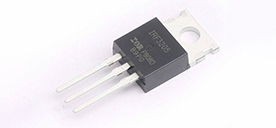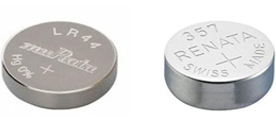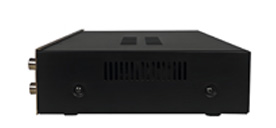Application and Development of Intelligent Optocouplers
2024/4/15 11:10:34
Views:
A smart optocoupler is a device that combines an optical sensor and an electronic amplifier to isolate, convert, and amplify signals. It plays a vital role in various fields such as industrial control, communications, and medical instruments.
Unique Features of Smart Optocouplers
High isolation: Intelligent optical couplers use the principle of optical coupling to have a high degree of signal isolation, effectively resist noise interference and signal crosstalk, and improve the stability and reliability of the system.
Wide operating frequency range: Smart optocouplers have a wide operating frequency range, adapting to signal transmission requirements at different frequencies, thus showing flexibility in a variety of application scenarios.
Fast response time: The smart optocoupler has a fast response speed, quickly transmits signals and achieves fast switching, meeting application scenarios that require high signal transmission speed.
Low-power design: The smart optocoupler adopts an advanced low-power design, which is energy-saving and environmentally friendly. It also reduces the heat generated by the device and extends its service life.
Miniaturization and high integration: The smart optical coupler is small in size and simple in structure, making it easy to integrate into various devices, saving space and improving the overall performance of the system.
Strong anti-interference ability: Intelligent optical couplers can resist electromagnetic interference and environmental interference, maintain stable signal transmission, and ensure data accuracy and reliability.
Programmability and intelligence: Some smart optocouplers have programmable functions and can set and adjust parameters according to actual needs, realizing automated control and intelligent applications.
Multiple interface options: The smart optocoupler provides a variety of interface options, including analog input, digital input, digital output, etc., to meet the conversion and transmission needs of different types of signals.
Ultra-high precision: Some smart optical couplers have ultra-high-precision signal processing capabilities, achieving precise signal measurement and control, meeting application scenarios that require high signal accuracy.
Multiple functions of smart optocouplers
Signal isolation: Through the principle of optical isolation, the smart optocoupler effectively isolates the input end and the output end, preventing signal interference and noise propagation, and ensuring the stability and reliability of the system.
Signal conversion: It can convert analog signals or digital signals into optical signals and vice versa, realizing mutual conversion and transmission between different types of signals.
Signal amplification: The electronic amplifier built into the smart optocoupler can amplify the input signal and improve the quality of the signal, making it more suitable for long-distance transmission or complex system applications.
Electrical isolation: Optical and electrical isolation can transmit signals between different circuits without direct physical contact, reducing the mutual influence between circuits.
Power supply isolation: It realizes power supply isolation between the input terminal and the output terminal, avoiding short circuits, overloads, etc. caused by power supply problems, and improving the safety of the system.
Data transmission: In the field of communication, intelligent optical couplers realize high-speed and stable data transmission, ensuring the normal operation of the communication system.
Sensor interface: In the field of medical instruments and industrial control, smart optical couplers are often used to connect various sensors to convert and transmit the data signals collected by the sensors to the controller or monitoring system.
System isolation: Intelligent optocouplers can achieve isolation between various parts in complex systems, prevent system failure points from interacting with each other, and improve the stability of the overall system.
Automated control: Intelligent optocouplers with programmable functions can set and adjust parameters as needed, realizing automated control and improving the intelligence of the system.
Sensor filtering: In sensor signal processing, intelligent optical couplers can filter the signal to remove noise interference and improve the accuracy and stability of sensor measurement.
Unique Features of Smart Optocouplers
High isolation: Intelligent optical couplers use the principle of optical coupling to have a high degree of signal isolation, effectively resist noise interference and signal crosstalk, and improve the stability and reliability of the system.
Wide operating frequency range: Smart optocouplers have a wide operating frequency range, adapting to signal transmission requirements at different frequencies, thus showing flexibility in a variety of application scenarios.
Fast response time: The smart optocoupler has a fast response speed, quickly transmits signals and achieves fast switching, meeting application scenarios that require high signal transmission speed.
Low-power design: The smart optocoupler adopts an advanced low-power design, which is energy-saving and environmentally friendly. It also reduces the heat generated by the device and extends its service life.
Miniaturization and high integration: The smart optical coupler is small in size and simple in structure, making it easy to integrate into various devices, saving space and improving the overall performance of the system.
Strong anti-interference ability: Intelligent optical couplers can resist electromagnetic interference and environmental interference, maintain stable signal transmission, and ensure data accuracy and reliability.
Programmability and intelligence: Some smart optocouplers have programmable functions and can set and adjust parameters according to actual needs, realizing automated control and intelligent applications.
Multiple interface options: The smart optocoupler provides a variety of interface options, including analog input, digital input, digital output, etc., to meet the conversion and transmission needs of different types of signals.
Ultra-high precision: Some smart optical couplers have ultra-high-precision signal processing capabilities, achieving precise signal measurement and control, meeting application scenarios that require high signal accuracy.
Multiple functions of smart optocouplers
Signal isolation: Through the principle of optical isolation, the smart optocoupler effectively isolates the input end and the output end, preventing signal interference and noise propagation, and ensuring the stability and reliability of the system.
Signal conversion: It can convert analog signals or digital signals into optical signals and vice versa, realizing mutual conversion and transmission between different types of signals.
Signal amplification: The electronic amplifier built into the smart optocoupler can amplify the input signal and improve the quality of the signal, making it more suitable for long-distance transmission or complex system applications.
Electrical isolation: Optical and electrical isolation can transmit signals between different circuits without direct physical contact, reducing the mutual influence between circuits.
Power supply isolation: It realizes power supply isolation between the input terminal and the output terminal, avoiding short circuits, overloads, etc. caused by power supply problems, and improving the safety of the system.
Data transmission: In the field of communication, intelligent optical couplers realize high-speed and stable data transmission, ensuring the normal operation of the communication system.
Sensor interface: In the field of medical instruments and industrial control, smart optical couplers are often used to connect various sensors to convert and transmit the data signals collected by the sensors to the controller or monitoring system.
System isolation: Intelligent optocouplers can achieve isolation between various parts in complex systems, prevent system failure points from interacting with each other, and improve the stability of the overall system.
Automated control: Intelligent optocouplers with programmable functions can set and adjust parameters as needed, realizing automated control and improving the intelligence of the system.
Sensor filtering: In sensor signal processing, intelligent optical couplers can filter the signal to remove noise interference and improve the accuracy and stability of sensor measurement.
Related Information
-
-
Phone
+86 135 3401 3447 -
Whatsapp





